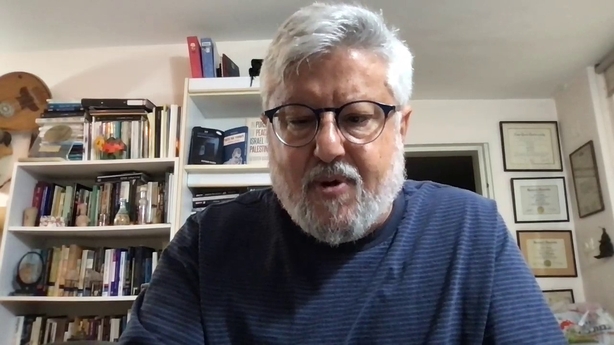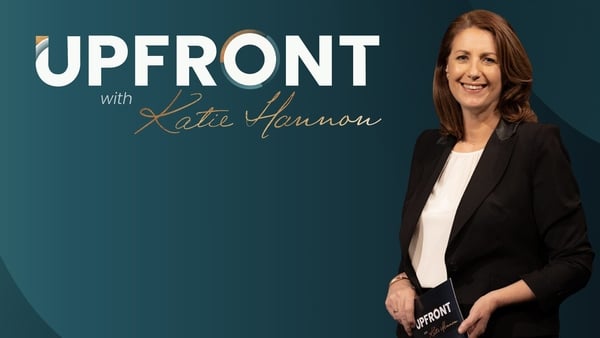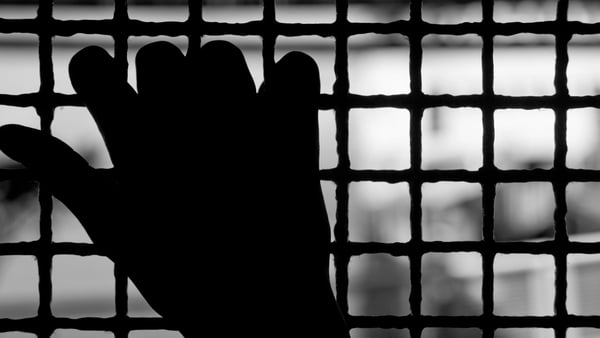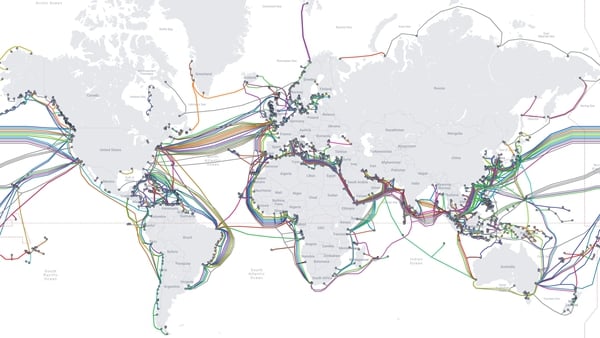It's almost a month since the 7 October attacks by Hamas, which saw a reported 1,400 Israelis killed and around 240 hostages taken by the militant group.
The response was swift with the Israeli Defence Forces placing Gaza under what Israel called a "total siege".
It has been followed by weeks of airstrikes and ground incursions, leading to more than 9,000 casualties in the Palestinian territory and what the United Nations Relief and Works Agency (UNRWA) has called a "humanitarian catastrophe".
Calls for a humanitarian ceasefire from multiple international leaders and agencies have failed to stop the fighting and on Thursday Israel's military said its forces had surrounded the Hamas stronghold of Gaza City after a day that saw the Palestinian territory pounded by deadly fire.
But what was the motivation for the Hamas attacks and what is the endgame for the Israeli Defence Forces?
Gershon Baskin is one of very few people who has had close contact with both the Israeli authorities and the Hamas leadership over many years.
The Israeli peace campaigner is the founder of the Israeli-Palestinian Public Policy Institute and for 17 years he negotiated with Hamas leadership in both an official and unofficial capacity.
He has long campaigned for equal rights for both Israelis and Palestinians and has regularly condemned acts of violence on both sides.
Despite his consistent dialogue with the Hamas, he was shocked by the 7 October attack.
"It's impossible to understand what Hamas were thinking in light of what they did [on 7 October]," Mr Baskin told Katie Hannon on Upfront: The Podcast.
"I cannot find a rational answer of why they did it."
Listen to Gershon Baskin speaking to Katie Hannon on Upfront: The Podcast
We need your consent to load this rte-player contentWe use rte-player to manage extra content that can set cookies on your device and collect data about your activity. Please review their details and accept them to load the content.Manage Preferences
Hamas' motivation
Mr Baskin’s primary contact in Hamas throughout multiple periods of conflict in the region has been Ghazi Hamad, an international spokesperson for the group.
But on Wednesday, Mr Baskin published an open letter to Mr Hamad stating he would be cutting off contact with the group.
It follows an interview the Hamas representative gave to Lebanese television in which he said: "Nobody should blame us [Hamas] for the things we do. On October 7, October 10, October one-millionth, everything we do is justified."
In the letter, Mr Baskin wrote: "You [Ghazi Hamad] and your friends are directly responsible for the tragedy that is happening to your people."
Mr Baskin told Upfront: The Podcast that: "They [Hamas] lost control of their own humanity when they did what they did [on 7 October]."
A Letter You Simply Must Read:
— Elad Simchayoff (@Elad_Si) November 1, 2023
I interviewed @gershonbaskin. For the past 45 years, he's been a known Israeli peace activist. You can say that he is the only Israeli who has been keeping direct contact with some of the leaders of Hamas, even after the events of 7.10.
In 2006,… pic.twitter.com/C1dMjsNWuP
Mr Baskin has previously been involved in successful hostage negotiations with Hamas and Ghazi Hamad, who he had previously viewed as the only moderate member of the militant group.
He was the initiator and negotiator for over five years of the secret back channel between Israel and Hamas that lead to the release of Israeli soldier Gilad Shalit in 2011 in return for the release of 1,027 prisoners, mainly Palestinians and Arab-Israelis.
But following the 7 October attack and the doubling down of the Hamas leadership, he no longer sees them as a viable partner for peace.
Mr Baskin said: "Hamas needs to be dismantled. You cannot win. You cannot destroy an idea, an ideology.
"Hamas holds to a philosophy of Islam which I believe is a distorted philosophy of Islam in which they believe that life on earth is short and insignificant.
"They believe that they will enter paradise when they go and kill Israelis. Dying for Allah, for Palestine, for Islam is all part of life's duties."

Israel's endgame
A former adviser to both the Israeli and Palestinian governments, Mr Baskin has also been critical of the current Israeli administration lead by Benjamin Netanyahu, saying he doesn’t think they have any immediate plans to end the war currently under consideration.
"I don't think they're beginning to discuss an exit strategy. What we need to avoid is any chance at all that someone would suggest that Israel should stay in Gaza and reoccupy. God forbid people will come along and say, let's rebuild the settlements that we evacuated in 2005," he said.
In 2005, then Israeli prime minister Ariel Sharon ordered full disengagement from Gaza, marking an end to settlements that started after Israel took control of the region following the Six-Day War in 1967.
"When the war is over, and we have the day of reckoning, we will see the end of the Netanyahu-era in government. There are significant calls for Netanyahu to resign now because he does not have the trust of the people. He won't resign. He will be forced to resign.
"At the end of the day and he and his government and all the previous governments need to be held accountable for bringing us to where we are today, they are directly responsible," Mr Baskin said.
While support amongst the Israeli people for Mr Netanyahu is next to non-existent, according to Mr Baskin, he says there is popular support for the ongoing war effort despite the humanitarian crisis it has caused in Gaza.
"We on Israeli television don't see it. What we see is like a video game, we see bombs hitting buildings and buildings collapsing, but we don't see the horror that the people of Gaza are living through. We don't see the human catastrophes."
There is a similar lack of awareness in Gaza about the 7 October attack amongst Palestinians, he said.
"Friends of mine in Gaza contacted me in the first week of the war. When they asked me, 'Why is Israel doing this to us? Why are they killing us like this?’ I tell them, ‘Don't you know what Hamas did in Israel?’ And they don't know because they haven't seen the pictures.
"We don't know the mutual hurt and suffering that we've been causing each other," Mr Baskin says.
Road to peace
With the announcement on Thursday evening that Israeli forces had surrounded Gaza City, the prospect of stability in the region seems as far away as it has ever been but the long-time peace campaigner remains hopeful for the future saying the peace process in Northern Ireland could act as an inspiration.
"What happened in Belfast was not a moment, it was a process, and it took time. But there was a period of time where the people of Northern Ireland said no more. It's not the perfect peace and the conflict hasn't been resolved ... but people are not killing each other anymore," he said.
Mr Baskin believes that if a peace is ever to be achieved, major concessions will need to be made on both sides.
He said: "Palestinians have to do their own accounting and, come to terms with Israel's existence. And Israel needs to cease its control of the Palestinian people and to remove the idea of Jewish superiority in the state of Israel.
"Maybe we will be wise enough to get rid of the people who brought us here. The leadership on both sides have to be held accountable and new voices from the new generation of Israelis and Palestinians will stand up.
"We have to look each other in the face and we have to sit down and figure out how we live together, not how we die together."
Listen to Gershon Baskin speaking to Katie Hannon on Upfront: The Podcast here, on Apple Podcasts and on Spotify.






